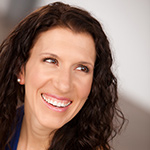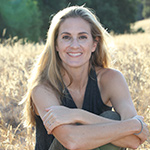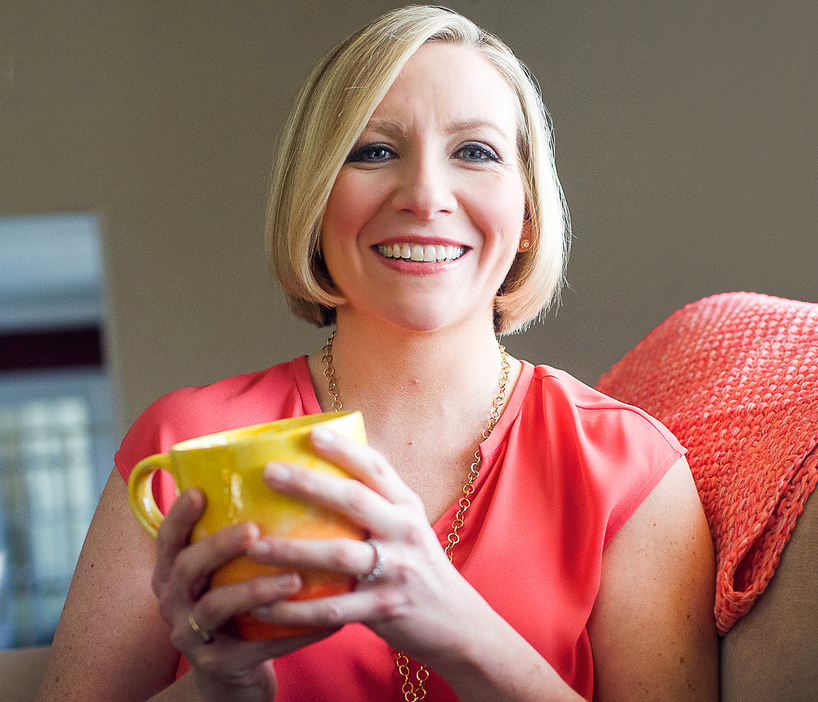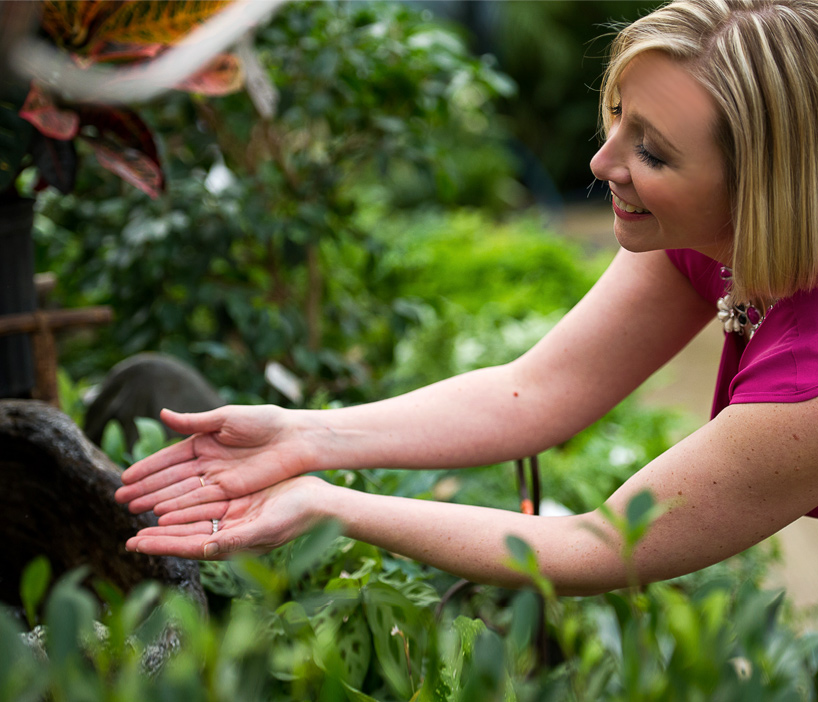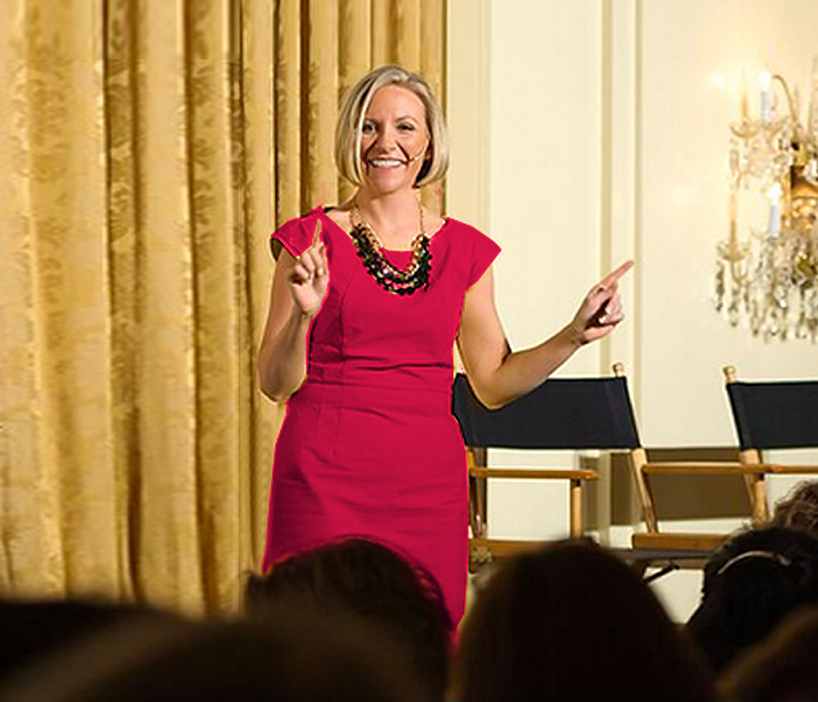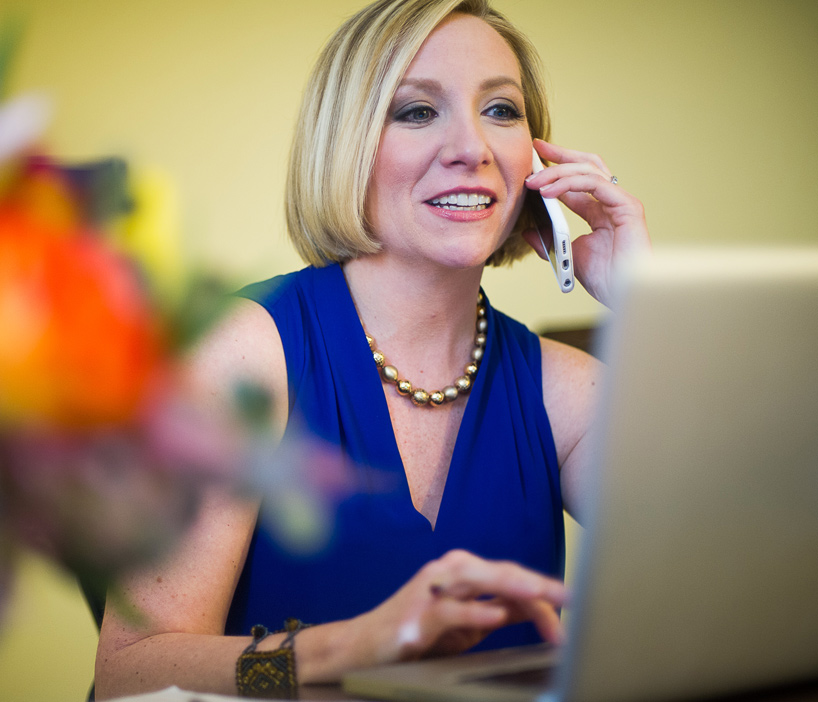Today’s guest is a Certified Life Coach, UCSF-trained Family Nurse Practitioner and Breathwork Meditation Guide with a passion for helping women realize that they are their own best healers. Her goal is to help women break free from codependency, perfectionism and people-pleasing and reclaim their joy. Victoria Albina is sharing her story with Patty on today’s episode.
Victoria was in poor health, but conventional medicine couldn’t figure out what was wrong with her. She decided to become a nurse practitioner so she could find out what was wrong with her and she’s now helping lots of others.
What she realized: the root cause of her issues was mind-set and limbic system related.
Did you know our bodies can hold our experiences for us? That’s why we get a stomachache when we’re anxious or a headache when we are worried. Often our physical ailments are emotionally related and emotionally based.
Victoria shares how our autonomic nervous system keeps our body going for us. That’s led by the vagus nerve. Victoria explains what’s optimal and how to understand the way our body manages stress.
Once we understand how our bodies work, it’s possible to understand the mind-body connection.
Having our feelings and giving them space, is really important.
Victoria shares insights around people-pleasing and perfectionism, two traits of codependency This stems from the belief that you are not worthy of love, so you have to source it from others outside of you instead of knowing it and trusting it within yourself.
Coming from compassion is a way to begin healing. Allowing yourself to understand that the people-pleasing that was a genius strategy as a child, is no longer serving us as adults. No need for guilt or shame. This is information that we weren’t taught to understand.
Victoria and Patty talk about why we need each other. Humans are pack animals. We need multiple people in our lives that we can go to when we need help and emotional support. The more we can connect with different people, the richer life can be. It’s another chance to grow and learn about yourself.
Victoria’s work helps people feel loved and understand that they matter. Our bodies know how to help us heal. Your cup can be full and your health can be restored by the power within you.
Connect with Victoria:
Free Meditations
Anchored Program Waitlist
Instagram
SUBSCRIBE TO THE SPACE FOR MAGIC PODCAST ON YOUR FAVORITE PODCAST PLATFORM
Apple | Spotify | Stitcher | iHeart | Amazon
0:00:04.3 S1: Welcome to the space for magic podcast, where people who are led by their hearts come to learn the secrets to receiving all the gifts the Universe has for us. I’m your host, Patty Lennon. I’m an ex-type a corporate banker turned intuitive coach using a blend of common sense brain science and just a dash of magic, I’m here to help you create abundance in every area of your life and business. Welcome. Hey everyone, welcome to this episode of the space for magic podcast. I’m your host, Patty Lennon. And today we have a very special guest with us. Victoria Albina is joining us, she is a certified life coach, UCSF trained Family Nurse Practitioner and breath work meditation guide with a passion for helping women realize that they are their own best healers, so they can break free from co-dependency perfectionism and people pleasing to reclaim their joy. Oh my goodness, are those… Not all the things we need is so excited to have you here Victoria. Thank you.
0:01:13.8 S2: Patty. I’m so delighted to be here.
0:01:16.7 S1: Alright, so let’s start with your history, so you spend 30 years bouncing from doctor to doctor with a clear diagnosis for the gut and mental health issues that you are experiencing, so how did those start and how did you figure out that there were solutions outside… You know, the typical healthcare model that most of us are familiar with.
0:01:40.1 S2: How did I figure out that there were solutions… I just wasn’t getting better. I was sick, like you said, from when I was a little kid until I really took my health into my own hands and decided that the half-bake answers I was getting from the Western allopathic medical system, were just not… Not something that I was acceptable for me. You know, I didn’t wanna live a life where I just felt really lousy all the time, Where my belly always hurt, where I was scared to eat, and I just felt like there had to be an answer outside of… Well, frankly, we don’t know what’s wrong with you, which is mostly what I heard. So I studied herbal medicine, I studied functional medicine, like you said, I went to UCSF and became a nurse practitioner, all towards the goal of figuring out how I could heal myself. Right. I’m a nerd-nerd, and I wanted to learn more about anatomy and physiology and how bodies work, and then I wanted a medical degree so I could order fancy labs. And in that process, I learned about functional medicine. And you know, it really just resonated so much with my belief in our body’s capacity to heal when we get out of our own way.
0:03:00.4 S1: And how much of what you’ve learned for yourself, do you now spend your work teaching others…
0:03:08.8 S2: Oh, just somewhere around a million, bajillion percent, I would say. Yeah, so when my work was clinic-based, I was working with folks who had GI issues mostly, and in all those many years of working with the GI system, so I was diagnosed with the irritable bowel syndrome, which is like the garbage can diagnosis. They’re like, We don’t know what’s wrong with you, but we don’t think you’re actively dying, so here’s the diagnosis, so you’ll go home and think that we did something… And it’s pretty much what IBS is.
0:03:44.1 S1: Wow, I gotta stop you there because you’re… I don’t have someone in my immediate that I take care of that has a diagnosis… I actually didn’t understand that.
0:03:57.0 S2: Oh yeah, IBS is, it’s not Crohns, It’s not colitis. It’s not cancer, it’s not. Don’t there, we can’t find anything. That’s what IBS is, we can’t find anything, but we need to tell you it’s something… So this is what it is. Irritable Bowel, your belly has a bad attitude, is what they’re telling you, but it’s not true, it’s usually… As it was in my case, I had a parasite blastocystis hominis, which is a particularly rude little jerk of aspire keep and something called small intestine bacterial overgrowth or SIBO, and to brag Patty, I had SIBO before it was cool, it’s now all the rage in the functional medicine world, but I had it before, it was a fad. And back then, most regular primary care clinicians and gastroenterologist don’t even look for SIBO, but no one was even talking about it then, so it was really… It became my passion to help folks like me to heal from these really debilitating GI conditions that mess with every area of your life, and it was really through that work that I came to realize that the actual issue… Yes. Is the parasite? Yes, so the food sensitivity…
0:05:14.5 S2: Yes, is the bacterial overgrowth and the root root cause under that, is mindset, is nervous system function is… Limbic system function is the way we talk to and about ourselves, the way we treat ourselves, because all of that impacts our Vagus nerve and our autonomic nervous system, which controls our gut or thyroid or reproductive function, and our mood, our energy. So I shifted to really, really supporting folks in healing on that level.
0:05:46.9 S1: And I know for some there listing the word somatic. Isn’t something understood? So do you explain what a somatic practice is?
0:05:56.3 S2: Gosh, I’d love to… So Soma is the Greek word for body, so it’s the practice of returning to the body and looking to the body’s innate and magnificent wisdom for answers, for direction, for support, and really beginning to get into conversation with ourselves through our bodies so that we can start to release the old stories, the old energies the old thoughts and feelings about ourselves that we may have been carrying for a lifetime that no longer serve us, that keep us feeling stuck, that keep us in emotional or physical pain, and through these practices, we can also see where we’re somatizing, which is a slightly different thing that a somatic practice somatizing is when our emotions or rather when our bodies or hold the experience of our emotions for us, and I think we’ve all know that that person in our lives when things get stressful, things get hard, they get a belly ache, they get a headache, their joints hurt, they feel tired all of the sudden, these are somatic or bodily experiences and expressions of emotions and feelings, and the more we can understand what’s going on in our own Soma, the more we can show up for ourselves, the more we can regulate our nervous system, and I can tell folks with the heck that means, for sure.
0:07:24.0 S2: And the more we can understand what’s going on for us, so we can support ourselves in the ways we actually need…
0:07:32.1 S1: Yes, yes, I think we wanna hear what that is, to tell us what we can do, tell you what regulating the nervous system is, or tell you what you can do… Yes, tell us what the regulated… How We can regulate our system, and then what that looks like…
0:07:47.4 S2: All right, so I’m a nerd out pretty hard. Patty, you ready? Do you have your teenagers on…
0:07:54.4 S1: Yes, and if I plan and if I can’t follow you, I will slow you down. And ask you questions. Perfect.
0:08:01.0 S2: I love that. Thank you. So the autonomic nervous system, I think of as the automatic nervous system because it mostly functions without our input, which is really a pretty wonderful thing. I’m curious, Patty, exactly. How long do you think you would last if you had to keep your heart rate going by yourself…
0:08:21.4 S1: Yeah, how long can I exist without my heart rate going, so they’re at… There we go, that’s.
0:08:28.5 S2: A… Exactly, yeah, I would last two heartbeats and it’d be like, Oh, squirrel one have ice cream, boom, dead. So thank goodness that the automatic nervous system goes on without me. I’m very grateful for it. Quite earnestly, you know? So the automatic autonomic nervous system controls heart rate, breathing, digestion, thyroid function, just if you picture the middle of the animal from your face, write down through where your thyroid is in the middle of your throat, your swallowing, retroflex heart lungs, diaphragm, digestion, reproductive function, excretion, all those middle of the animal, things are handled by this part of the nervous system, and so this part of the nervous system is led by the vagus nerve.
0:09:14.6 S1: So here, you may have heard of poly Vegal theory. I don’t know if that’s crossed your path to… It has to… It.
0:09:21.3 S2: Has not great. So polyvagal work of Dr. Steven porches PhD. I’m a nerd, but I can put science into English, he’s like a nerds nerd nerd, so if folks want to learn more about poly-vagal, I wouldn’t dive in with Porches work, it’s about heart rate variability in newborns, then neonatal ICU. It’s not like a fun Sunday read on the porch. You know what I mean? So my podcast feminist wellness, I talk a lot about it, and Deb Dana is a social worker who puts it into English, so purchases work showed us that the Vegas nerve, which is the 10th cranial nerve, is the longest nerve in the human body, it goes from your brain all the way down to your tail bone, and the vagus nerve has three parts, so one is sympathetic activation, and the other is parasympathetic, so sympathetic is fight or flight, that is anxiety, that is freaking out. That is getting worked up. Worried, anxious, sweaty palms. Racing heart, breathing, shallow, that’s ruled by adrenaline and norepinephrine, so that’s the sympathetic nervous system. Fight or flight. That’s a foot, your foot is all the way on the gas, your body’s just like Go, go, go, going.
0:10:41.3 S2: Then we have para-sympathetic, which we used to think of as just broadly rest and digest, and what we now understand it to be is to have two branches, one is called Ventral Vagus ventral means the front of the animal and the other is dorsal Vegas, the back of the animal, ventral vagus controls innervate or gives nerve function to everything from the face down to the diaphragm, and it has an impact on again, heart and lungs you’re breathing, your pulse rate and is taking in information from your face, your ears about the world. Ventral vagal is referred to as safe and social, so it’s the part of our nervous system that helps us to connect with others, to just be really chill and just… You have a conversation like we’re having right now, things that help us in a conversation to be in ventral vagal, to feel safe in our bodies are a sincere smile, crows feet. Isn’t that cool? Fascinating isn’t that fabulous? So wrinkles, let us know someone’s smiling in a sincere way. I love that. More crows feet. More better, right?
0:11:53.4 S1: I do. I’m like, Yes, this is really affecting me… Okay, go ahead.
0:12:00.0 S2: I love it. Yeah, I used to have this neighbor who would smile just with her mouth, like the rest of her face didn’t move, and it made me feel so uncomfortable in my body, like on an animal mammalian level, I was like, oh, do you do what you hate me? Do you wanna kill me in my sleep, like what does this… Half smile, right? So when we’re in ventral Vagal, everything in our body works optimally, everything through the middle of us works optimally, the next phase, so the second part of the audit of the parasympathetic nervous system is called dorsal, and that’s the freeze response, so we have a sympathetic, which is foot on the gas. Go, go, go. Anxious, freaked out. I wanna run or punch, but I’ve gotta get out of here, I’m stuck in an elevator emotionally and… Oh my God, I’m panicking. The other end of that, in terms of nervous system response is dorsal freeze, that is… Your foot is all the way on the break, you have no energy, you feel depressed, deflated, defeated, disconnected. Just not really social. You don’t wanna talk… Please don’t ask any questions, I just…
0:13:10.0 S2: I can’t… People right now, I just… I’m over it. Whatever you wanna do, we do. I can’t… And so the reason why bring this up is because when we can understand the state of our own nervous system, we can understand the ways we relate to ourselves and the world, and we can start to see the impact of our mindset and our thoughts on our physiology.
0:13:39.8 S1: What you just described, I think a lot of us feel like… At least growing up, we were taught, you feel down, you feel depressed, push through it, you feel anxious. Pushed through it, right? And that’s the opposite of what we need. Yeah, I mean…
0:14:00.1 S2: Yeah, I don’t ever recommend pushing through anything, right, but rather finding self-compassion, self-love, understanding, we really… With all this technology, with all of us walking around with super computers in our pockets, we’ve really forgotten that we’re mammals, we’re not that different from our Simian cousins or our squirrel cousins, like Our bodies have needs as mammals as animals and… Yeah, when we try to push through and get it all done and show up and have a good smile and people please when we feel like crap and really push… It’s really just ingraining stories into our bodies, into our nervous systems, like My needs don’t matter, I’m not important, my need for rest isn’t something that’s valuable here, everyone else matters more than me, so… Yeah, I’m with you. I don’t like pushing through anything gently encouraging myself, from compassion, from gentleness, from love, really different than pushing.
0:15:07.6 S1: What are some somatic practices or what’s an alternate approach that can be used to help someone get out of that stress response state?
0:15:21.9 S2: Yeah, so the first thing to do is to recognize that we don’t always wanna get out of it, that having our feelings and giving them space, allowing them to exist, and so we can process them through our bodies and can experience them through our bodies is really important now, I get it, sometimes you’re at work, sometimes you’re at… You’re picking your kids up at school, like sometimes there are reasons why we might need to sort of pull it together in the short term, but what I will say is we are so much more able to pull it together when there’s an outside reason why… When our bodies trust us, when you’re in, our children trust us, what our nervous systems trust us, that we know how to… It’s not even we know how to do ’cause we do all know how to, but when our bodies trust us that we will give them the time and the space and the care they need, and that we will allow ourselves to scream into the void to feel disappointed to feel frustrated and not just think it, but I actually feel it in our bodies actually collapse on the bathroom floor and have a really good cry, then our bodies let us move through it more quickly.
0:16:36.9 S2: Does that make sense, Patty?
0:16:38.4 S1: Absolutely, and it completely coincides with something that we talk about here, so when I talk about the heart of making space for magic is to receive to be out of resistance, to be in receptivity and to receive everything, and when we take the work deeper, one of the places that I go with people is to start to meet your rejected selves, and these are the parts that we normally label lazy. It’s selfish or irresponsible. And I think that’s a lot of those parts account for a lot of the behaviors we’re talking about, it’s when you know that you need to rest, but you don’t, because you’ve decided that’s lazy, the external world has taught you it’s lazy, and so your inner world is just constantly in conflict with itself.
0:17:31.7 S2: Right? Yeah, I would agree. I think people don’t pause to realize how much impact our socialization, our conditioning and our family blueprint has on all the stories we tell about ourselves, the people we love, the world, and our capacity to care for ourselves.
0:17:49.4 S1: Which is a great segue to something I had seen you post a while ago about… And I’m probably… It was a while ago that I read it, so I may not have this exactly right, but you had posted that people pleasing is often seen as a weakness, and someone’s being like, If we’re people pleaser or if we’re always focused on the other people’s needs that this is somehow a weakness or that we are weaker, and in fact, it is a result of being taught that Your needs just don’t matter and that it needs to be seen through a different lens. Does this make sense? The way I’m interpreting it. Yeah, absolutely. So talk more about that because I know a lot of people listening have walked that path and are so frustrated at finding themselves back in a habit of people pleasing when they don’t wanna be that, and I think if they understand the root of this from a trauma level or from a socialization level, it will give them the encouragement and perspective that maybe we’ll give them some freedom. Yeah.
0:19:00.9 S2: So I look at… So my work is to support human socialize women to overcome codependent, perfectionist and people closing thought habits, so I see people pleasing and perfectionism as two symptoms of codependent thinking, which stems from the belief that you are not worthy of love and that you need to source your worth your validation, your importance, you’re right to breathe from everyone and everything outside of you instead of knowing, trusting and believing it within yourself, and so from there, my goodness, people-pleasing is such a natural outcropping, like it just makes so much sense if you don’t think you’re inherently worthy, then you feel you have to prove it all the time to everyone around you always and forever. And so if you keep… If the people around you pleased with you, then… Well, they’ll never doubt how amazing you are, right, they’ll never doubt whether you’re worthy of the next meal, whether you’re worthy of having live indoors, whether you’re worthy of love, or care, or friendship, a job, partnership, anything. And so people pleasing makes so much sense when we think developmentally about children, to developmentally children understand that their safety is in the hands of their adults, they’ve grown up the caretakers in their home, and so if the home is chaotic, if there’s emotional immaturity, emotional volatility, if things just…
0:20:38.9 S2: The child recognizes that they won’t be seen and heard, or there’s chaos developmentally, they are wise enough to know that if they keep their adults happy, they’ll be safe… This is also a very mammalian thing, particularly for pack animals, we want the pack to be pleased with us, because then when danger comes, Well, we are an animal that they will rescue from the Marauders or the Lions or tigers or bars.
0:21:07.2 S1: Yes, I completely relate with this, and in my case as a child, and I’ve talked about here, my home wasn’t necessarily… My parents never made me feel like they’d abandoned me or they judge me if I had needs, it was that I just sensed they were so over-taxed that my needs could potentially tip the balance, which would then topple the… Whatever, and they would not have the ability to take care of me, not from a desire, but simply from a capacity. Yeah.
0:21:46.8 S2: Yeah, that’s very astute, and I think it’s a pretty common experience. Yeah, yeah, particularly if there’s a sick sibling or a sick family member or a higher needs kid in the family I’ve found, or higher needs adult as well… Yes. Yeah, in addition to whatever else is going on. Yeah, yeah, and so I really think of all of these habits, co-dependency perfectionism, people pleasing, putting others ahead of ourselves, really like shape-shifting in relationships and being who we think people want us to be instead of our authentic selves, they were all genius in childhood, right. And the more we can see that the magnificent genius that is at the root of these things that are now issues in adulthood, I think the more compassion we can have, the kinder we can be to ourselves, and it really and truly is from compassion and care that we can make change ’cause you can’t… Heal hurt with more hurt, and so yelling at yourself that there’s something wrong with you, you’re broken, you know, it’s never really going to affect change, in my opinion. Yeah, yeah.
0:23:00.8 S1: Yeah, because that inner child just that never got that sense of safety of who they were suddenly, is now not getting it from themselves, and that then creates a… They’re just reliving that early version of what they originally had, where when we re-parent ourselves, comfort ourselves, give ourselves what we miss, that’s when the nervous system can start to soothe, right.
0:23:34.7 S2: And we can get into ventral vagal, the safe and social part of the nervous system with ourselves, and what’s really important to understand, and this is a saying in the nervous system world, story follows state, so the state of your nervous system determines the commissions that you have the capacity to go to like your go-to thoughts are dictated by if you’re in sympathetic and you’re all jacked up on adrenaline, you’re collapsed in dorsal, you have no capacity to deal with the world, or if you’re in ventral vagal, you’re safe and social, everything’s fine. And so when you beat yourself up for doing what your inner children knew to be genius, then you are taking yourself out of ventral vagal and taking your nervous system up into sympathetic or down into dorsal, right. You are hijacking your nervous system again, unwittingly, I’m not saying anyone’s like, means to do this right no need for guilt or shame or I can’t believe I didn’t know this. You just didn’t know it. No one taught you this, I feel like this should be middle school mandatory information, but… Yeah, so when you do everything you can to support your body and your nervous system to cry it out, scream it out, get it out, and then come back into ventral vagal, then you can choose your story, you can choose your minds that you can choose your cognitions and then you can choose that compassion story, so it’s like this circular thing we’re bringing in the compassion gives you more capacity to bring in compassion…
0:25:08.0 S2: Is that interesting?
0:25:09.3 S1: I love this, I love this. And you know this is tying into tightly, I love the way that this is coming in together with things that we’ve talked about here too, where one of the places that where people come to work with me is to learn to access their intuition at different levels, and one thing I will explain to people is there’s this idea that intuition is this thing for some people have it, or some people have stronger versions of it, and what I try and educate is on the role… Of the amygdala place right when the amygdala fires up, it actually blocks the stable communication of the intuition. Right. Okay, so I just listen to a podcast where you were talking about the important role friendships play in our lives, period, and what I found so fast meeting about what you were talking about was to seek your needs to be met through multiple people and not needing a single person, whether it’s your romantic partner or single best, whatever it is, to be that source for you, and I think there’s a lot of wisdom here right now, especially with so many ideas changing and people finding themselves may be polarized with people that they once were sympathical with, let’s say, they thought, we’re on the same page about everything, and suddenly that maybe not isn’t so clear anymore, and this all or nothing version of friendship versus maybe a more abundant level of friendship that I heard.
0:26:51.6 S1: You communicate… Can you talk a little bit about that? Yeah.
0:26:55.5 S2: Well, so many things, right? When we grew up in a co-dependent household with co-dependencies, the flavor of the home, often a very insular system, it’s a very closed system, because again, if you’re sourcing your worth from the people around you, there is more safe, more felt safety, if you keep that circle small, because then there’s fewer people who can reject you, fewer people who can abandon you, or you keep your relationships very surface, don’t let yourself get vulnerable and don’t really let people see the real you, because again, you don’t believe in your worth, and so you’re scared they’ll reject you, they’ll leave you on the side of the mountain to die cold and alone. And so when that’s what we see growing up, often we think that that’s the way things are, right, particularly if there was substance use or other chaotic behavior in the household, there’s often wasn’t a lot of letting people in… Do you know what I mean? And so, yeah, I was actually talking with a client this morning, we do weekly coaching in my six-month program, and one of the people, one of the women in the group was sharing that she really got this story from her mom, she grew up with a single mom, who had a lot of co-dependent traits, her mom had a lot of co-dependent traits, and the story really was that it was the two of them against the world, and that was something that her mom would say out loud all the time, like, I Love You Baby, It’s You and Me Against the World.
0:28:28.9 S2: Right, and so we start to believe that that’s the way things should be. But humans are pack animals, right, we need a pack, we need a collective around us, and I think it’s really important that we don’t make one person our everything for the reason you just said, that when there is a difference of opinion… That’s impossible. When somebody who dies, when somebody moves to Bangkok, when somebody has triplets, now when life gets life, and that person can’t be there for us the way they once were, it leaves this huge void and this huge vacuum in our lives that isn’t necessary to create in the first place, I also think it’s really nice to have a diversity of opinions, my friends do tend to, like most of us, be of a certain politic, but really do actually run quite the age gamut, I have friends in their 80s and friends in their 20s, and the more I could connect with different people, the richer my life gets, because they bring different opinions, different ways of thinking about the world, different life experience, and for me, and that gives me another chance to grow and to realize things about myself that I maybe wouldn’t have realized if I wasn’t in relation with those people…
0:29:56.4 S1: Oh, I love that. Yeah. Delicious. Yeah, so you mentioned your six-month program, so when you are working with someone in that relationship and that length of time, what is it that you find your clients come to you looking for…
0:30:18.8 S2: Yeah, to get out of this really, really, really painful cycle of codependent thinking of really… They wanna feel good enough, they wanna feel worthy, they wanna feel loved and lovable, they wanna feel like they matter, there wants their needs, their lives matter, and they want to learn how to communicate those wants and needs to the people they love in a way that is measured is at the core of codependent thinking, is really feeling disconnected from ourselves from the world, from the people we love, from our own motivations, like not really understanding our own motivations our own drives, and the work we do in anchored is really about reconnecting with self, really coming back into our authenticity and learning to speak both to ourselves and to other people from that authenticity, and from there… We don’t need to, people please. We learn how to be okay with others not being pleased to us, we learn to be okay with other people having their own feelings, because we’ve learned that we can manage our own… We can manage our own sadness, our own disappointment, our own upset, and we learn how to take care of ourselves in new and beautiful ways, and then how to ask others to support us and co-regulate our nervous systems, meaning to help us to get towards ventral vagal together, which is what happens when you’re like, Oh, I said, Can I get a hug? That hug is the an asked to co-regulate and we were more able to do that from the place of knowing I know how to regulate myself, I totally trust me, I know I have my own back, I can totally do what I need for me.
0:32:10.1 S2: And right now I need to hug from someone else, or not need… I want it rather. Yeah, beautiful. Yeah, between what a need.
0:32:18.9 S1: Yeah, now I know that it’s probably going to be another month or so when the podcast airs before people can get the opportunity to join you, but you do have a way for people to get some of this wisdom right now with free meditation you have available on your website? Yeah, and we do always run a wait list and we start filling the group about a month or two in advance, so… Yeah, so well, everyone where they can find the wait list for the group and your meditation, so…
0:32:51.9 S2: Fantastic, thanks, Patty, at VictoriaAlbina.com/Anchored is where you can learn more about the anchored program, and you can get your free meditation downloads by going to my website, VictoriaAlbina.com. There’s a blue bar right at the top of the page, click that, and then they’ll see where to put your name and your email in, and you will get the goods delivered right to your email inbox, so it’s a boundaries meditation and inner child meditation. An oriented exercise, which is a nervous system exercise, and some more and they’re just free for you.
0:33:26.8 S1: Right there. I love that. Now, I did reference your podcast, you’re also the host of the feminist Wellness podcast, and we’ll put a link to your show in our show notes. Is there anywhere else you’d like people to find you…
0:33:42.8 S2: Yeah, on Instagram at Victoria albino wellness.
0:33:46.3 S1: And those are the main three places… Thank you. Well, so before we sign off is there are any last words of wisdom you have for our audience?
0:33:57.0 S2: I would say that whatever is going on with your wellness, mental health, physical health, mood, relationship issues, the place to start is really looking at the ways you love up on yourself, are you really finding ways to claim your worth, are you giving yourself the care you need not just in a bubble bath and massage kinda self-care way though, I’m out here for a massage any day, Patty… Let me tell you, right, I would love one right now, but my point is, when you are talking to yourself in kind ways, when you are attending to your inner children, when you are doing the thought work that I teach on my podcast and to my clients, when you are in conversation with your body through somatic practices, you don’t really need the bubble bath again, it’s a lot versus need, you can really shift into a place of wanting to take care of yourself and not needing to… From that energy of feeling like you need to escape a life you don’t love, and that shift is really, really powerful, and I know it’s possible because I did it because I did it for myself, and I support my clients in doing it for themselves.
0:35:17.8 S2: Each and every day, so it really is possible to live a life you love.
0:35:23.9 S1: Beautiful. Well, thank you so much for being here and sharing your wisdom with us, Victoria. Or.
0:35:30.2 S2: It’s been an absolute pleasure. Patty, thank you.
0:35:33.0 S1: Thank you. And everyone, go check out Victoria, she… All of her information will be in our show notes, and I wish you an absolutely beautiful… Hey, thanks for listening. If you know someone who needs to hear this message, please share this episode with them, and if you’re feeling really generous, I’d love for you to leave us a review at your favorite podcast app, it helps us reach many more people and it fills my heart with so much joy when I hear what you have to say about what I’ve shared. I’m cheering for your success, have an amazing day. And don’t forget, always create space from magic.
0:36:22.6 S2: This podcast is part of the sounded advice network. Sound advice, FM, women’s voices, amplified.
Thanks for being here and reading my message. I want you to stay connected with me so that I can share all future communications with you.
Please enter your name and email below to join my community.
Success! Thank you for joining. You'll receive a confirmation in a while.

